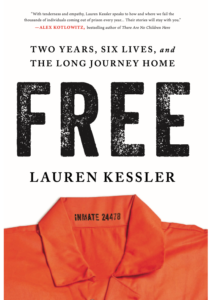I HEART librarians

As a writer, a reader, a bibliophile, one who believes that literacy unlocks countless doors, one who believes that books change lives, I have been a life-long lover of libraries. Especially public libraries.
Brief pause for historical interlude: As with many wonderful ideas that happened a long time ago in this country, Benjamin Franklin figures into the library narrative. He founded the first one in the colonies, a lending library in Philadelphia in 1703. The country’s first free (which is to say, tax supported) public library opened in the spring of 1833 in Petersborough, New Hampshire. The more famous (and erroneously claimed as “first’) Boston Public Library opened its doors in 1852. Fun fact: In the 1890s, the city boosters of Butte, Montana opened that city’s public library “as an antidote to the miners’ proclivity for drinking, whoring and gambling.” (One wonders how that worked out for them.)
A few years later, the millionaire (when that meant something) governor of New York, Samuel Tilden, bequeathed a fortune to establish the extraordinary New York Public Library. And then there was Andrew Carnegie, industrialist-philanthropist, who funded the establishment of more than 2,500 libraries worldwide, 1,689 of them, each a gem, in the U.S. Today, in case you’re interested, we have more than 16,000 public libraries.
And now, back to the present (or, rather, five days ago):
I am signing advance readers’ copies of my soon-to-be published book, Free: Two Years, Six Lives and the Long Journey Home, at the Public Librarians Association annual convention. Sourcebooks, my extraordinary publisher (incidentally, the largest woman-owned publisher in North America) has a booth in the convention hall. There’s a line of librarians queuing up, the badges hanging from their necks identifying them as hailing from Alaska and Arkansas, Wyoming, Arizona, Louisiana, Denver, Boston, all over the Midwest.
In the thirty seconds or so I have to interact with each of them, I ask why they are interested in the book. I’m prepared for the usual answer: Adult nonfiction is a big category for us. I am not prepared for the personal responses: The references to family members or friends who have spent time behind bars and their difficult journeys back to their communities. And I am really not prepared to learn of their professional involvement, as librarians, in the lives of previously incarcerated in their communities.
These librarians see and talk with these folks every day. Some—far too many–who are released from prison are unhoused. On the streets at night, they find refuge during the day at the public library, a warm, dry place to sit, to read, to snooze. And yes, to use the bathroom. Some who are released go to temporary shelters or halfway houses or transitional housing, too often chaotic noisy places that can feel (and be) confusing or unsafe or both. A few hours of quietly sitting, undisturbed, in a public library is a respite.
The librarians I got to meet were on the frontline, aware of and sensitive to the challenges of reentry. More than a few talked about special programs they run or are creating to welcome and serve this population. “We are at the heart of our communities,” one Ohio woman told me. “We serve the entire community—and that means those who’ve spent time in jail and are now back home. We can model that for others.”
Oh librarians, how do I love thee? Let me count the ways.
The book I signed for them, the book you can pre-order now (publication date April 19):







19 comments
I had not thought of librarians being on the frontlines of the issue of reentry and I love this new perspective on what our community libraries do.
A surprise to me too. Some libraries even have special committees devoted to creating welcome programs for those newly released.
I worked in downtown Atlanta for many years and spent countless lunch hours with a book in the peace and quiet of the APL. I was not the only one taking refuge there……..many homeless souls also took refuge there and shared my bagged lunch as I returned to to my desk with the remains. The odor was vile and the situation was heartbreaking. We need to reopen the mental health facilities that were closed many years ago. Many of the homeless are sick and suffering.
Too many of those released from prison are also homeless and must seek out safe public spaces that will allow them to sit. And so many others (as you experienced in that downtown library) those with untreated/ undiagnosed mental illness, those who could not afford treatment, those with drug problems, they make their way to libraries too. You are so very right about reopening and funding mental health facilities. Also it would serve all our communities to offer immediate, wrap-around services to those released from prison.
Thank you for sharing this information, Lauren.
I truly believe that nearly every person has a fairly direct connection to re-entry and/or incarceration. Whether they themselves were incarcerated, or a family member, coworker, friend or friend of a friend. When we talk openly, we find that there are so many individuals out there with truly lived experience. Talking is educating, education is power, power can change the narrative. Thank you again Lauren, you are an amazing lady, and I am grateful to know you!
Oh yes. If we all embraced this reality, Karen, that so very many of us have connections to those who have been incarcerated, perhaps we would be more welcoming, more forgiving, more interested in clearing the path from caged to free. All-Star touches (and improves) so many lives. what important work you do.
My mother used to regale me with stories of her father’s. brotherm, her uncle, who she used to refer to as Pigsnout Oscar. In another troubled time in our history, it seems the life of the hobo appealed to Pigsnout Oscar, He had been on the road for many years and wintered in libraries returning home to Lusk, Wyoming each summer to play with my Mom and to dig up my grandmother’s flower beds to plant potatoes and turnips. With the fall, he would be off again on the road. Libraries and Librarians have been safe haven for so many, Beautiful piece. Thanks.
“wintering in libraries…” that’s a lovely expression. After I read this, I looked up the derivation of “hobo.” Many possible origins, including the (apparently common) greeting in RR yards,”ho, boy.”
I went with my husband, newly released from prison after decades, to the library so he could sign up for a card. The librarian was awesome. As soon as he learned this fact, he patiently signed him up but then carefully explained the library checkout process, showed him how to use the online site and was super helpful. I was amazed and my husband really felt valued.
I am so delighted to hear this. What a great model for welcoming back the previously incarcerated into our communities.
I count among my friends several librarians. Most are academic librarians, but even the library at my college (a public institution) provides myriad supports to members of the wider community. Librarians and public libraries are amazing – my neighborhood branch of our huge county system has offered free Covid test kits, testing, vaccination clinics, and more. Some systems are hiring social workers for central branches. I <3 librarians too.
https://www.npr.org/sections/health-shots/2022/01/03/1063985757/why-your-local-library-might-be-hiring-a-social-worker
I love hearing all these stories about the role libraries and librarians play in our lives and our communities. Thanks so much for the link to the NPR story, Ruth.
Thanks for the link to this story. I hope others read it as well. It is more than occasionally a good idea to remember how many good and generous people there are in the world, how communities work–when they work–because of the clear-eyed and compassionate efforts of those who call them home.
Mary Frances Isom was the librarian that transformed the Multnomah County Library into a institution welcoming all, closing only on July 4th because it was weather was good enough for the down-and-out, who normally spent their days in the comfort of the library, to make do outside. She died in 1920. The beautiful Central Library was built under her watch as were the first branches. When I worked at the library, the staff could rent Spindrift, what had been her beach house in Neahkahnie, very reasonably (I recall $25 for the weekend) https://en.wikipedia.org/wiki/Mary_Frances_Isom
Lovely to learn this history. The Central Library is a gem.
Love this post. I didn’t know (but am not surprised) to learn of librarians’ special interest in serving folks who were once incarcerated. I learned about librarians’ serious involvement with homelessness some years back when the American Library Assn. met in Chicago. They invited The Night Ministry (where I worked) to present a panel on youth homelessness! I knew that people experiencing homelessness used public libraries to read books and magazines, stay out of the elements, and use the washrooms. What I didn’t know was that librarians were actively interested in learning how to help the folks they met with resources to help them survive and thrive.
Thanks so much for sharing this story. I love that ALA invited Night Ministry to the conference. Now THAT is outreach.
Hi Lauren,
Great post. I passed this on to my sister, a retired librarian, and got this note back from her. “Loved the article and the posts afterwards! Quite a few of them are like some of the things that the librarians here in Lucas County are trying to do for the newly freed from prison and homeless. They offer all kinds of job searching help, free GED, free use of the services of the library and the librarians. The latter are the best resource! Those men and women are fantastic! the knowledge they put together for each and every patron that walk through the library door is just supreme!” I agree!
Thanks for passing this along. Yet another compassionate, empowering library/ librarian story!
Leave a Comment